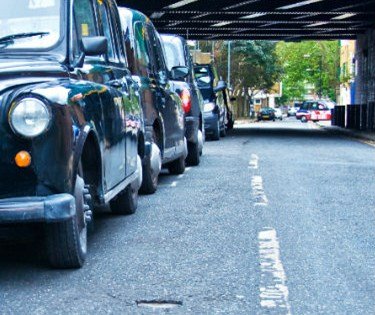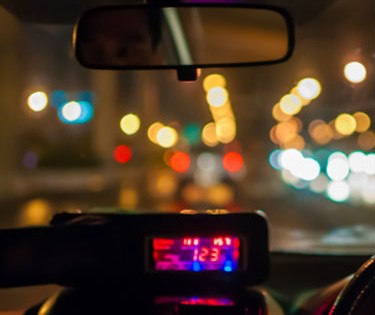You’ve chosen to embark upon a career as a taxi driver, but how do you become one? From the initial application to what it takes to be a successful taxi driver, read our simple guide to learn more.
Before you start working as a taxi driver,
there are several things you’ll need to consider. Firstly, you need to decide whether to apply for your taxi driver’s licence directly, or to take a college course. By applying directly, you’ll need to meet certain requirements.
Applying directly is is the most common route into taxi driving, but completing a college course could
give you an advantage when you start looking for work. For entry onto a college course, you’re likely to need a couple of GCSEs to be eligible for a Certificate in Road Passenger Vehicle Driving NVQ (Taxi and Private Hire) Level 2.
1. What you need to get started
There are a few things you’ll need to have before you can become a taxi driver:
- Legal documentation — To get started as a taxi driver, you’ll need to be able to work legally in the UK and will need to have held a full GB, NI or EU driving licence for at least 12 months. You will also require a criminal
background check, also known as a DBS certificate.
- Qualifications — You might also need to take a medical examination, a driving test, and a ‘Knowledge’ or ‘Cabology’ test. Depending on your local authority’s specific requirements, you may need
to provide proof of any English and maths qualifications.
- Taxi Insurance — Once you have obtained your taxi driver’s licence, you’ll need to arrange Taxi Insurance before you hit the road, in order to protect you, your vehicle, and your passengers.
How to get your taxi driver’s license
There are several requirements you’ll need to make sure you meet before applying for a taxi driver’s licence:
- You need to able to work legally in the UK
- You need to have held a full GB, NI or EU driving licence for at least 12 months
- You need to be willing to have your background checked, which may include an enhanced criminal record check from the Disclosure and Barring Service (DBS)
You might also need the following:
- A medical examination
- A ‘Knowledge’ or ‘Cabology’ test
- To take a driving test
- English and maths qualifications.
We recommend that you check if your local licensing authority has any specific requirements. Also, note that the eligibility requirements are slightly different in London. The requirements also differ in Northern Ireland.
Taxi driver theory test
Many UK councils require budding taxi drivers to take an assessment to ensure that their driving knowledge and ability is at an acceptable level before gaining their taxi licence. Vehicle maintenance knowledge is also important, along with how to show
consideration to passengers.
Such tests usually include both multi-choice questions as well as identifying key road signs and hazards, which you should be familiar with as a regular driver.

Can you pass your Cabology exam?
Take our quiz to see if you are one of the UK's most knowledgeable taxi drivers...
How much does it cost to apply for a taxi driver’s licence?
The cost of applying for a taxi driver’s licence depends on your location, but is usually around £430 in total. This includes the initial application fee of around £250, a skills assessment of around £40, a ‘Knowledge’
or ‘Cabology’ test fee of around £75, plus the cost of an enhanced DBS certificate, which is £66.60.
If you need to provide a medical certificate too, you’re looking at an extra £100 or so. Again, this
depends on your location.
Application costs vary across the country - check yours with your local council.
Where to apply for a taxi licence
Head to your local council website to find details on how to start applying for your taxi driver’s licence, and exactly what you need to provide them with. The process usually takes 12-16 weeks, however it’s worth noting that it may take much longer in cities such as London, due to the higher number of applicants.
Do taxi drivers need insurance?
If you are successful in securing your taxi licence and are ready to go out on the road you will need insurance that covers you against damages and injury. There are different types of Taxi Insurance available depending on what type of vehicle you drive. Swinton offers a range of Taxi Insurance policies to suit your needs.
2. What it takes to be successful
To be a successful taxi driver, you'll need to do the following:
- Drive safely - Staying safe on the road is imperative to being a successful taxi driver. Any driving mishaps could endanger both you and your passengers, and result in costly repairs. Stick to the speed limit at all times, follow
the rules of the road, and don’t drive while impaired in any way.
- Provide great customer service - Keep a clean and tidy vehicle, and be polite and helpful. Assist passengers with their bags and luggage, and be sure to thank them when they leave your vehicle. Great customer service is the
best way to ensure your passengers feel they’ve got value for money.
- Do your research - Having a good knowledge of the area you’re driving your taxi in will help you pick up fares. It will also help you know when to get to the busiest places, such as train stations during rush hour, and bars or night clubs around closing time. All of this means more fares and a more reliable stream of income.
3. Restrictions and requirements
Again, one of the main requirements of becoming a taxi driver is that you have a full UK, NI or EU driving licence, and have done so for at least 12 months. In addition to this, background checks, a skill test and a medical check, you’ll need to be aged 18 or over (note this is 21 in some areas), and the correct type of insurance.
4. How long does it take to become a taxi driver?
To become a taxi driver, it usually takes between 12 and 16 weeks if you apply directly to your local authority. If you decide to take a college course before applying for your taxi driver’s licence, you’re usually looking at a couple of days to complete a Level 2 NVQ.
5. How many hours do taxi drivers work?
As a taxi driver, it’s likely you’ll be working long and often unsociable hours. According to government guidelines, you shouldn’t be driving for more than 10 hours per working day, and it’s vital to ensure you’re getting enough rest in between shifts so you’re refreshed and prepared for when you get behind the wheel.
6. Is taxi driving a dangerous job?
Driving a taxi can be a stressful job, in that you’ll often be driving in busy traffic in built-up areas, and you might encounter some disruptive passengers from time to time. Your personal safety and ability to drive safely is paramount as a taxi driver, and it’s important to protect you, your passengers, and your vehicle with the right Taxi Insurance, in case of an accident or incident.
7. Do taxi drivers own their cabs?
Some taxi drivers own their own vehicles, especially if self-employed. While being self-employed can be more attractive to a taxi driver, mostly due to being able to take a bigger percentage of the fares received, it’s worth bearing in mind the additional costs of licensing, fuel, and general upkeep of the vehicle.
8. Becoming a taxi driver in different areas of the UK
Across the UK, there are different requirements in different regions when it comes to becoming a taxi driver. As a general rule, be sure to check the full requirements with your local licensing authority.
How to become a taxi driver in London
To become a taxi driver in London, you need to apply to Transport for London (TfL). Whether you want to become a public or private hire vehicle driver, check your eligibility with TfL first, as there are a number of differences between driving a taxi in London vs the rest of the UK:
- You must be 21 to apply for a private hire licence, rather than 18
- You will have to take a ‘topographical skills assessment’ – or a map-reading test!
- To get behind the wheel of one of London’s iconic black cabs, you’ll need to take the famous ‘Knowledge’ test – according to TfL, this can take up to four years, however there’s plenty of help available
How to become a taxi driver in Manchester
If you want to be a public or private cab driver in Manchester, you need to get in touch with Manchester City Council.
There are five key steps to becoming a licensed taxi driver:
- Step 1: Submit your application and register for your criminal background check
- Step 2: Attend appointment to discuss and review application
- Step 3: Take skills/knowledge tests
- Step 4: Application reviewed
- Step 5: If successful, licence is issued
How to become a taxi driver in Edinburgh
The process for becoming a taxi driver in Edinburgh is much the same as it is in Manchester and the rest of the UK, however there has been some recent controversy in the
city due to the increasing numbers of private hire licences being issued.
Chairman of the Unite Edinburgh Cab Branch, Scott Blair, said: “By continuing to increase the number of vehicles licensed to be on the road then Edinburgh risks
increased congestion in one of the most polluted cities in the UK."
Depending on the outcome of Unite’s campaign, it could be more difficult in the future to obtain a private licence from the council.

Taxi guides
Read more about becoming a taxi driver including start-up costs and overheads, how to get a taxi driver's licence and key taxi driver laws.